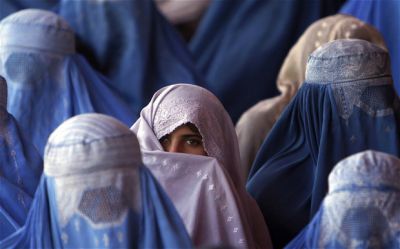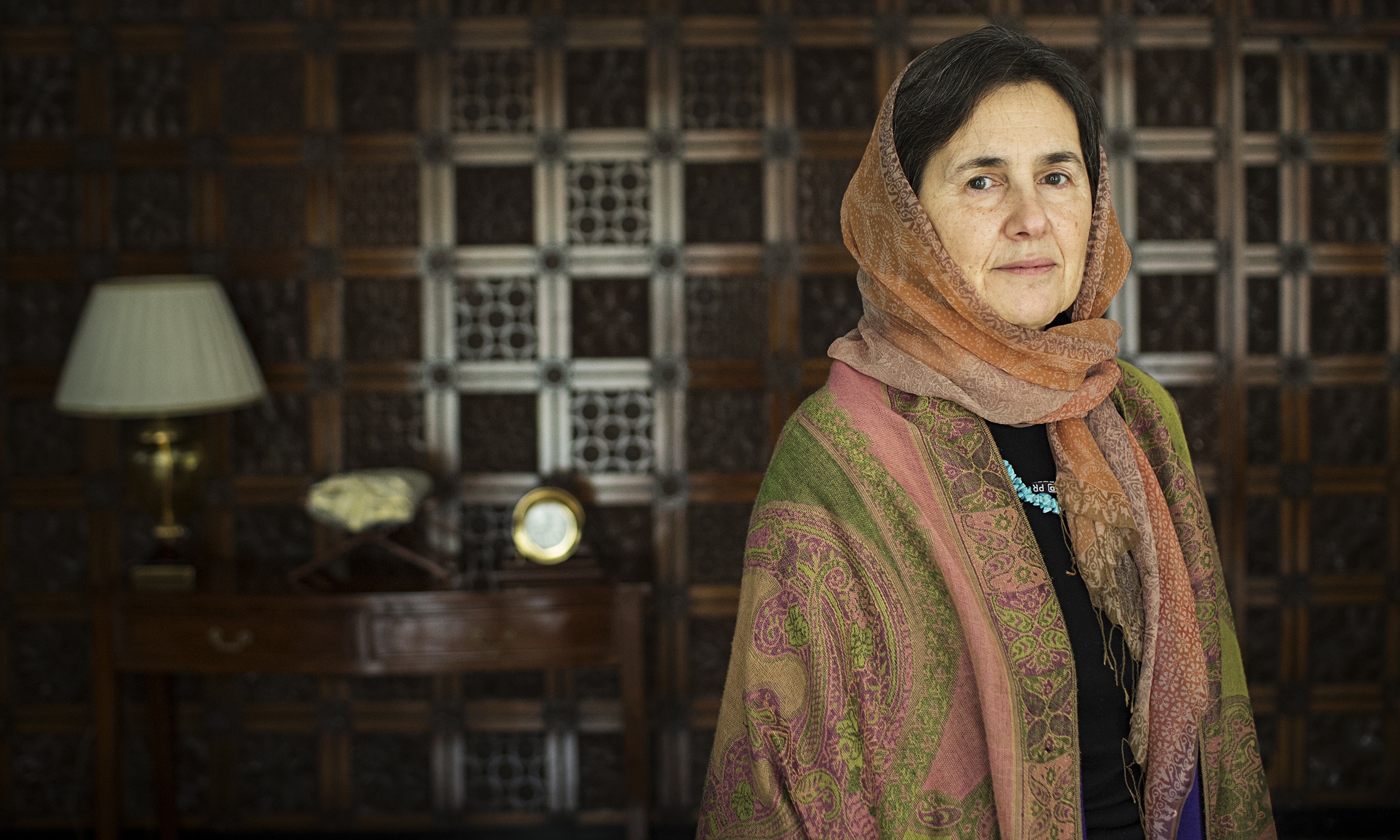
 Attention Afghanistan! Part 1: This is just the beginning
Attention Afghanistan! Part 1: This is just the beginning
Other | Sunday 4th January 2015 | Izaradz
If you are familiar with some of our classic Guestlist interviews, you will know that every so often we like to play a game of word association with our interviewees; a light-hearted game, designed to bring out personality and particular characteristics, unique to every person.
Let’s play that game now. What words come to mind when I say… Afghanistan? “Conflict”, “Taliban”, “military”, “terrorism”, "death", "bomb"? Quite predictable, but who can blame you? The majority of information we are faced with in the news or in documentary programs is centered on exactly that. Perhaps words such as, “change”, “progress”, “women’s rights” and “community” are far from rolling off your tongue, yet they belong a fundamental part of contemporary Afghanistan that is not always so familiar to the British public. There is a lot of bad news in 'the news' these days, but surely we went into Afghanistan and nurtured some good. Do you know what that was?
In the past few years, huge advancements have been made within Afghan society, with regard to human rights. Although your instinct reaction of concern is still relevant and appropriate, it should not be isolated. After talking to Kate Hughes, the campaign manager for Amnesty Afghanistan, the Afghan spirit of democracy and passion towards change seems to be stronger than ever. This article is the first in a two part series that will highlight some of the less obvious parts of Afghan life. I begin with women and their astounding passionate attitudes towards change. In the second article we will focus on Paradise, Afghanistan’s first female rapper.
“Afghanistan is an absolutely stunning country and Afghans are such incredibly resilient people. Meeting people that have gone through 30 years of war and after that are still fighting for their rights for democracy. There’s something about the spirit of Afghans that is truly incredible.” – Kate Hughes
We want to emphasise the positivity that is fueling society forward, it wasn't, and still isn't always like that everywhere. In December last year, BBC Radio 4 aired a program called “Afghan Women: Speaking Out, Losing Lives”, produced by Beaty Rubens. The program is narrated by Lyse Doucet, who traveled to the capital, Kabul, to find out about the challenges and hardships that women in Afghanistan still face today, 13 years after the fall of the Taliban regime.
“From female illiteracy to material mortality and sexual violence, Afghanistan is still one of the worst places on earth for women’s rights” – BBC Radio 4
Many women still suffer from violent attacks and threats from the ever-present, lurking shadows of the Taliban force. They are punished for taking up public roles and working, which the Taliban see as disgraceful and illegal. This backward and conservative attitude unfortunately still has a domineering presence in the country, particularly in the suburbs and provinces along the Pakistani border. There, women are imprisoned by a life dictated by strict rules and their rights are near to worthless. Life is dangerous and violence is much more common. They are unable to do anything without the permission of their husbands, and a single step out of line can have unthinkable consequences.
Many have had to go into hiding as a result of their identity and activity being revealed and targeted, such as the protagonists of the stories narrated on the BBC Radio 4 program. In Kabul the situation is much safer. Girls go to school, nurses can train and women make a choice. Yet the progress of transformation is far from over and there is still a long way to go. The lowering of the NATO flag should not be misunderstood as “a job well done”.
This is a key moment in the country’s history. Afghanistan has been left to self-govern after the departure of NATO troops on 31st December. The retirement comes with an uncomfortable dose of anxiety, given the sad and threatening mist of reality described above, that still lingers.
“There is that confidence there to go out and fight for the rights that they deserve. But there is a huge fear that goes with it. Only a few weeks ago, a female member of parliament was involved in a terrorist attack targeting her. She survived, but a couple of young girls were killed in that attack. There have been countless attacks of schools and female teachers in the provinces last year. Four women were murdered in the space of six months in one province”

Nevertheless, there is a strong aura of optimism that binds the various narrations together. Fear is now a conquerable obstacle, fought with powerful weapons of education, perseverance and commitment. Motion and action, such as protest, training, sport and culture, that would have been unthinkable under the Taliban regime, are becoming more and more commonplace. Women, and indeed men, have the confidence to speak out for their rights.
What’s more, encouragement is coming from the activism of the First Lady, Rula Ghani, a powerful and iconic spokesperson for the advancement of women’s rights. Her speeches detailing the importance of these rights, and the significance of a woman’s role in the family provide symbolic notes of support, even more so given that she is wholeheartedly endorsed by her husband, President Ashraf Ghani.
“They did a street march against violence against women. Then there was a covert poster campaign about violence against women. Posters appeared over night condemning it, and these were put up around some main roundabouts in Kabul. Things like that were unimaginable in the Taliban era. Girls were not even allowed to go to school. Yet when I was working in Kabul, I had degree-educated women on my staff that had benefited from the 15 years of life being better and life post-Taliban.” – Kate Hughes

Anonymous anti-violence against women campaign popped up on #Kabul streets today. pic.twitter.com/bvrrfPT110
— Courtney (@courtneybody) December 2, 2014
Indeed, we must remember that before the Taliban's ruthless and conservative rule that objectified so worthlessly the position of a woman, women were educated, worked and had a very respected role in society.
The Taliban are certainly still a strong presence in certain areas, regardless of the huge leaps towards their regression that have been made over the past decade. Peace talks are still in motion, although it must be said that a woman voice has not been heard in any of these.
So what of Amnesty International and us? How can we help? To conclude Part 1, it is only fitting that we hear the closing statement from the expert herself.
“We have been campaigning for over three years for the protection of women’s rights in Afghanistan. One of the main things that we have been asking for this whole time is that the UK contributes to the protection of Afghan women human rights defenders. A human rights defender is not just an activist, it’s anyone who is helping people realize their rights. That’s teachers, doctors, parliamentarians. These are the women that very frequently come under attack and Amnesty has been asking for the UK government to do more to reach out to those women, support them and keep them safe." - Kate Hughes
This is is just the beginning for Afghanistan, and we cannot forget it. It is our responsibility to continue caring and cultivating a just democractic culture in this country, and continue raising awareness in order to demonstrate our support.
“Troops are drawing down and leaving, and I think the really important message is not to forget Afghanistan right now. Just because the military side of things is at an end doesn’t mean that everything is fixed and perfect now. We have to keep caring about the fate of their country.” – Kate Hughes
Follow Kate Hughes on Twitter at @gingerlings
Iza Radwanska Zhang
